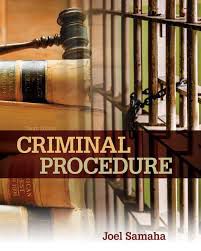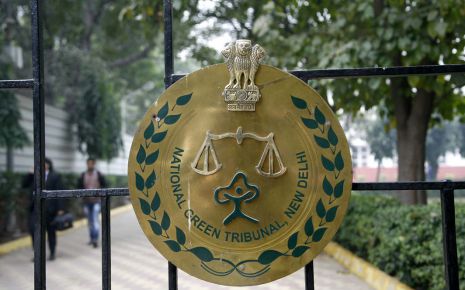Analysis: Cruelty As A Grounds For Divorce
Indian society has long faced many social evils and practices including sati,
child marriage and dowry. The term dowry is defined under the Dowry Prohibition
Act, 1961 as:
Any property or valuable security given or agreed to be given either directly or indirectly:
This was brought to light and raised valid questions as to the implementation of the same. Cruelty as a cause of divorce has been established and continues to be effective along the lines of its legislative intent.
The Hon'ble Supreme Court, in Arnesh Kumar v. State of Bihar and Anr, laid down guidelines for procedures relating to arrest of persons by the polic. It held that prior investigation in order to confirm facts would be essential before arrest.
Facts:
Both parties, the husband and the wife, used to live in the same building. They fell in love and got married as per Christian traditions and Customs on 28-12-1987. The couple had two daughters. At the time of the marriage, the husband was an electrical contractor and hiw wife was a clerk at a school in Bandra. After the marriage, in 1989, the husband got a job as an electrician at Hindustan Petroleum Corporation.
Common evidence was recorded by the Family Court in the husband's Petition for divorce and the wife's Petition for maintenance. The husband has examined himself. The wife examined herself and 3 witnesses in support of her case. After hearing the parties, the Family Court allowed the Petition of the husband and passed a decree of dissolution of marriage between the parties on the grounds of 'cruelty' and 'desertion' and partly allowed the Petition of the wife by granting maintenance of Rs. 1000/- per month to each of the two daughters and rejected the prayer of maintenance to the wife.
On 7-1-2005 the wife lodged F.I.R against her husband at Kherwadi Police Station under Section
498A and Section 406 of The Indian Penal Code, 1860. She stated that on 3/4 January 2005 night, her husband left the matrimonial house in his own accord and went to his parent's home.
The police brought her husband to Mumbai and was kept in prison for 7 days. In cross examination, the wife admitted that she filed the complaint only to bring her husband back to the matrimonial house for which he was arrested for 7 days which clearly shows the case of cruelty by the wife to her husband.
The issues framed and answered by the Family Court in respect of the husband's Petition No.A-1162/2005 seeking divorce, were recorded as under:
Issue Findings:
Issues:
Law
The appellant challenged the decision passed by the Family Court for the denial of maintenance to her and the dissolution of marriage on the grounds of "desertion" and "cruelty.
The respondent resisted the challenge and also contended that she had threatened to leave the house.
Another one of the respondent's contention was that the appellant had in fact filed a complaint against him only to bring him back to the matrimonial house for which he was arrested and was in prison for 7 days. This clearly shows the case of cruelty against the husband/respondent.
The impugned order of the High Court was partly allowed on the grounds of cruelty and desertion. The High Court observed that 'Desertion means forsaking or abandonment of one spouse by the other without reasonable cause and against the wish of the other for one to two years.' In this present case, the husband left the house for 2/3 days before filling the petition and the same was upheld by the High Court. The wife had inflicted mental cruelty upon the husband by filling the false complaints in the police station.
The Court relied on various judgements passed by The Supreme Court in order to support its judgement.
Some of these judgments include:
The ultimate objective of our legal system is to punish the guilty and protect the innocents. In this case the misuse of Section 498A and Section 406 of Indian Penal Code was highlighted. In Arnesh Kumar vs State of Bihar & Anr, (2014) 8 SCC 273[9] it was held in this case that when a complaint is filed under the section 498A of Indian Penal Code due to the rampant misuse of this provision the police must arrest that person after investigation.
In this present case it clearly shows that he did not commit any illegal act under this provision of Indian Penal Code for which he was arrested for 7 days.
Conclusion
This case brings to light the fact that divorce between two persons can be for a multitude of reasons, especially cruelty, specifically mental cruelty and agony. It highlights that humans are complex beings with emotions that need to be considered. This judgment was considered a landmark for the fact that it also brought to light the misuse of provisions meant for the protection of women. It is also another example of justice prevailing and acknowledges the principle of law that a person is innocent until proven guilty of the offense he/she is accused of.
End-Notes:
Any property or valuable security given or agreed to be given either directly or indirectly:
- By one party to a marriage to the other party to the marriage; or
- By the parents of either party to a marriage or by any other person, to either party to the marriage or to any other person; at or before or any time after the marriage in connection with the marriage of said parties but does not include dower or mahr in the case of persons to whom the Muslim Personal Law (Shariat) applies.
This was brought to light and raised valid questions as to the implementation of the same. Cruelty as a cause of divorce has been established and continues to be effective along the lines of its legislative intent.
The Hon'ble Supreme Court, in Arnesh Kumar v. State of Bihar and Anr, laid down guidelines for procedures relating to arrest of persons by the polic. It held that prior investigation in order to confirm facts would be essential before arrest.
Facts:
Both parties, the husband and the wife, used to live in the same building. They fell in love and got married as per Christian traditions and Customs on 28-12-1987. The couple had two daughters. At the time of the marriage, the husband was an electrical contractor and hiw wife was a clerk at a school in Bandra. After the marriage, in 1989, the husband got a job as an electrician at Hindustan Petroleum Corporation.
Common evidence was recorded by the Family Court in the husband's Petition for divorce and the wife's Petition for maintenance. The husband has examined himself. The wife examined herself and 3 witnesses in support of her case. After hearing the parties, the Family Court allowed the Petition of the husband and passed a decree of dissolution of marriage between the parties on the grounds of 'cruelty' and 'desertion' and partly allowed the Petition of the wife by granting maintenance of Rs. 1000/- per month to each of the two daughters and rejected the prayer of maintenance to the wife.
On 7-1-2005 the wife lodged F.I.R against her husband at Kherwadi Police Station under Section
498A and Section 406 of The Indian Penal Code, 1860. She stated that on 3/4 January 2005 night, her husband left the matrimonial house in his own accord and went to his parent's home.
The police brought her husband to Mumbai and was kept in prison for 7 days. In cross examination, the wife admitted that she filed the complaint only to bring her husband back to the matrimonial house for which he was arrested for 7 days which clearly shows the case of cruelty by the wife to her husband.
The issues framed and answered by the Family Court in respect of the husband's Petition No.A-1162/2005 seeking divorce, were recorded as under:
Issue Findings:
- Does the Petitioner prove that the Respondent has deserted him for at
least two years immediately preceding the presentation of the Petition? In
the Affirmative
- Does the Petitioner prove that the Respondent has treated him with
cruelty? In the Affirmative
- Is he entitled for a decree of divorce? In the Affirmative
- Whether the Petitioner be declared as an exclusive owner and in
possession o[1]f the Flat 45/2219, Samadhan CHS Ltd. Gandhi Nagar, Bandra (East), Mumbai
400 051 of his matrimonial house and row house No.17 at Ashwini Residency,
Sansodo Raia Salcette, Goa and that the Respondent has no right or claim to sell
away or dispose of the same without prior written consent of the Petitioner? OR
in the alternative Whether the Petitioner be declared the joint owner and in
possession with Respondent in Flat[2] 45/2219, Samadhan CHS Ltd. Gandhi Nagar,
Bandra (East), Mumbai 400 051 and row house No.17 at Ashwini Residency, Sansodo
Raia Salcette, Goa of his matrimonial house and that Respondent has no right or
claim to sell away or dispose of the same without prior written consent of the
Petitioner? In the Negative
- Whether the Respondent is hereby restrained by a permanent and perpetual
order from restraining, transferring, selling or disposing off or from
creating any third party interest or alienating or encumbering the said flat
at Flat 45/2219, Samadhan CHS Ltd.
Gandhi Nagar, Bandra (East), Mumbai 400 Residency, Sansodo Raia Salcette, Goa?
In the Negative
- Whether the Respondent is hereby restrained by a permanent and perpetual order from restraining, transferring, selling or disposing off or from creating any third party interest or alienating or encumbering the said Flat 45/2219, Samadhan CHS Ltd. Gandhi Nagar, Bandra (East), Mumbai 400 051 and row house No.17 at Ashwini Residency, Sansodo Raia Salcette, Goa and or from regularizing the tenancy/ownership/ membership of the said flat in the name of any third party? In the Negative After the order of the Family Court, the wife filed an appeal to High Court for denial of maintenance and dissolution of marriage.
Issues:
- Whether divorce can be granted on the grounds of cruelty and desertion?
- Whether maintenance should be given to the wife?
Law
- Section 498-A of IPC, 1860
Husband or relative of husband of a woman subjecting her to cruelty — Whoever, being the husband or the relative of the husband of a woman, subjects such woman to cruelty shall be punished with imprisonment for a term which may extend to three years and shall also be liable to fine.
- Section 406 of IPC, 1860
[3]Punishment for criminal breach of trust.—Whoever commits criminal breach of trust shall be punished with imprisonment of either description for a term which may extend to three years, or with fine, or with both.
- Section 125 of CrPC, 1973
Order for maintenance of wives, children and parents:
- If any person having sufficient means neglects or refuses to maintain
- his wife, unable to maintain herself, or
- his legitimate or illegitimate minor child, whether married or not,
unable to maintain itself, or
1. Subs. by Act 45 of 1978, s. 12, for" Chief Judicial Magistrate" (w. e. f, 18- 12- 1978 ). - his legitimate or illegitimate child (not being a married daughter) who has attained majority, where such child is, by reason of any physical or mental abnormality or injury unable to maintain itself, or
- his father or mother, unable to maintain himself or herself, a Magistrate of the first class may, upon proof of such neglect or refusal, order such person to make a monthly allowance for the maintenance of his wife or such child, father or mother, at such monthly rate not exceeding five hundred rupees in the whole, as such Magistrate thinks fit, and to pay the same to such person as the Magistrate may from time to time direct: Provided that the Magistrate may order the father of a minor female child referred to in clause (b) to make such allowance, until she attains her majority, if the Magistrate is satisfied that the husband of such minor female child, if married, is not possessed of sufficient means.
- "minor" means a person who, under the provisions of the Indian Majority Act, 1875 (9 of 1875 ); is deemed not to have attained his majority;
- "wife" includes a woman who has been divorced by, or has obtained a divorce from, her husband and has not remarried.
- Such allowance shall be payable from the date of the order, or, if so
ordered, from the date of the application for maintenance.
- If any person so ordered fails without sufficient cause to comply with
the order, any such Magistrate may, for every breach of the order, issue a
warrant for levying the amount due in the manner provided for levying fines,
and may sentence such person, for the whole or any part of each month' s
allowances remaining unpaid after the execution of the warrant, to
imprisonment for a term which may extend to one month or until payment if
sooner made:
Provided that no warrant shall be issued for the recovery of any amount due under this section unless application be made to the Court to levy such amount within a period of one year from the date on which it became due: Provided further that if such person offers to maintain his wife on condition of her living with him, and she refuses to live with him, such
Magistrate may consider any grounds of refusal stated by her, and may make an order under this section notwithstanding such offer, if he is satisfied that there is just ground for so doing.
Explanation: If a husband has contracted marriage with another woman or keeps a mistress, it shall be considered to be just ground for his wife' s refusal to live with him.
- No Wife shall be entitled to receive an allowance from her husband under
this section if she is living in adultery, or if, without any sufficient
reason, she refuses to live with her husband, or if they are living
separately by mutual consent.
- On proof that any wife in whose favour an order has been made under this
section is living in adultery, or that without sufficient reason she refuses to
live with her husband, or that they are living separately by mutual consent, the
Magistrate shall cancel the order.[4]
4. Section 10 (1)(ix) and Section 10 (1)(x) of The Indian Divorce Act, 1869
Grounds For Dissolution Of Marriage:
- Any marriage solemnized, whether before or after the commencement of the
Indian Divorce (Amendment) Act, 2001 (51 of 2001), may, on a petition
presented to the District Court either by the husband or the wife, be
dissolved on the ground that since the solemnization of the marriage, the
respondent:
(ix) has deserted the petitioner for at least two years immediately preceding the presentation of the petition; or
(x) has treated the petitioner with such cruelty as to cause a reasonable apprehension in the mind of the petitioner that it would be harmful or injurious for the petitioner to live with the respondent.
The appellant challenged the decision passed by the Family Court for the denial of maintenance to her and the dissolution of marriage on the grounds of "desertion" and "cruelty.
The respondent resisted the challenge and also contended that she had threatened to leave the house.
Another one of the respondent's contention was that the appellant had in fact filed a complaint against him only to bring him back to the matrimonial house for which he was arrested and was in prison for 7 days. This clearly shows the case of cruelty against the husband/respondent.
The impugned order of the High Court was partly allowed on the grounds of cruelty and desertion. The High Court observed that 'Desertion means forsaking or abandonment of one spouse by the other without reasonable cause and against the wish of the other for one to two years.' In this present case, the husband left the house for 2/3 days before filling the petition and the same was upheld by the High Court. The wife had inflicted mental cruelty upon the husband by filling the false complaints in the police station.
The Court relied on various judgements passed by The Supreme Court in order to support its judgement.
Some of these judgments include:
- In Malathi Ravi, M.D. v. B.V. Ravi, M.D., (2014) 7 SCC 640[5], it has
been held by the Supreme Court that subsequent events which are established on
the basis of undisputed material on record can be taken into consideration in
determining whether the grounds for divorce are made out.
- In V. Bhagat v. D. Bhagat, (1994) 1 SCC 337[6], after considering the
material on record, the Supreme Court held that averments made in the counter
and the questions put by her Counsel in the cross-examination of the Petitioner
constitute act of cruelty and no further material is necessary to establish
additional grounds.
- In Vijaykumar Ramchandra Bhate v. Neela Vijaykumar Bhate, (2003) 6 SCC
334[7], the Apex Court has held that the allegations made in the written
statement or suggested in the course of examination and by way of
cross-examination satisfy the requirement of law (for the grant of divorce on
the ground of cruelty) has also come to be firmly laid down by the Supreme Court
following the decision in V. Bhagat v. D. Bhagat.
- In Vishwanath Agrawal v. Sarla Vishwanath Agrawal, (2012) 7 SCC
288[8], the Apex Court after analyzing the subsequent events and conduct of the
wife allowed the Petition of the husband for divorce.
The ultimate objective of our legal system is to punish the guilty and protect the innocents. In this case the misuse of Section 498A and Section 406 of Indian Penal Code was highlighted. In Arnesh Kumar vs State of Bihar & Anr, (2014) 8 SCC 273[9] it was held in this case that when a complaint is filed under the section 498A of Indian Penal Code due to the rampant misuse of this provision the police must arrest that person after investigation.
In this present case it clearly shows that he did not commit any illegal act under this provision of Indian Penal Code for which he was arrested for 7 days.
Conclusion
This case brings to light the fact that divorce between two persons can be for a multitude of reasons, especially cruelty, specifically mental cruelty and agony. It highlights that humans are complex beings with emotions that need to be considered. This judgment was considered a landmark for the fact that it also brought to light the misuse of provisions meant for the protection of women. It is also another example of justice prevailing and acknowledges the principle of law that a person is innocent until proven guilty of the offense he/she is accused of.
End-Notes:
- https://indiankanoon.org/doc/138380349/
- https://www.lawinsider.in/judgment/mrs-christine-lazarus-menezes-vs-mr-lazarus-peter-menezes-and-anr
- https://indiankanoon.org/doc/988620/
- https://indiankanoon.org/doc/1056396/
- https://indiankanoon.org/doc/1387951/
- Malathi Ravi, M.D. v. B.V. Ravi, M.D., (2014) 7 SCC 640
- V. Bhagat v. D. Bhagat, (1994) 1 SCC 337
- Vijaykumar Ramchandra Bhate v. Neela Vijaykumar Bhate, (2003) 6 SCC 334
- Vishwanath Agrawal v. Sarla Vishwanath Agrawal, (2012) 7 SCC 288
- Arnesh Kumar vs State of Bihar & Anr, (2014) 8 SCC 273
Law Article in India
Legal Question & Answers
Lawyers in India - Search By City
LawArticles
How To File For Mutual Divorce In Delhi

How To File For Mutual Divorce In Delhi Mutual Consent Divorce is the Simplest Way to Obtain a D...
Increased Age For Girls Marriage

It is hoped that the Prohibition of Child Marriage (Amendment) Bill, 2021, which intends to inc...
Facade of Social Media

One may very easily get absorbed in the lives of others as one scrolls through a Facebook news ...
Section 482 CrPc - Quashing Of FIR: Guid...

The Inherent power under Section 482 in The Code Of Criminal Procedure, 1973 (37th Chapter of t...
The Uniform Civil Code (UCC) in India: A...

The Uniform Civil Code (UCC) is a concept that proposes the unification of personal laws across...
Role Of Artificial Intelligence In Legal...

Artificial intelligence (AI) is revolutionizing various sectors of the economy, and the legal i...








Please Drop Your Comments